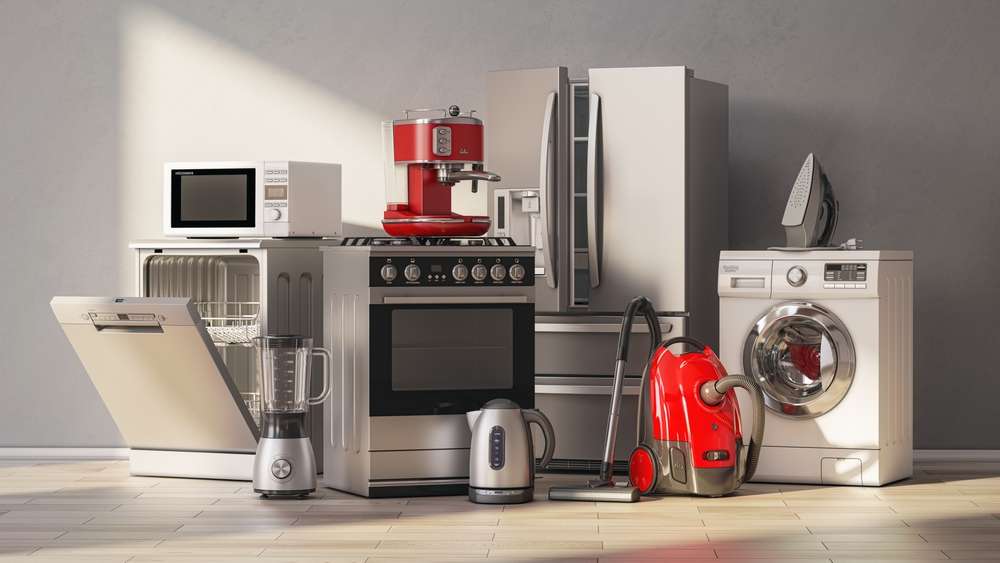Home Appliances: Types, Energy Use, and Care
Home appliances play a central role in modern households, handling tasks from cooking and cleaning to food storage and climate control. Understanding the main categories, energy considerations, maintenance routines, and repair options can help you choose appliances that fit your lifestyle, reduce energy use, and last longer. This article outlines practical guidance for selecting, using, and caring for common home appliances.

What are the main types of home appliances?
Home appliances generally fall into major categories: major kitchen appliances (refrigerators, ranges, ovens, dishwashers), laundry appliances (washers and dryers), small appliances (microwaves, coffee makers, mixers), and HVAC or climate-control units (air conditioners, heaters, fans). Each category serves distinct household functions and has different installation needs, typical lifespans, and energy profiles. When evaluating any appliance, consider its size, capacity, installation requirements, and whether it meets your household’s usage patterns and space constraints.
How should you evaluate energy efficiency and performance?
Energy efficiency ratings, such as ENERGY STAR in many regions, give a baseline for comparing models and estimating operating costs. Look at annual energy consumption figures, not only the nominal wattage, and consider features that reduce use—like inverter compressors, eco modes, or sensor-driven cycles. Performance factors include cycle times, water use, temperature control, and noise levels. Balancing upfront cost with expected energy savings and durability can help determine overall value for your household over the appliance’s service life.
What features matter when choosing kitchen and laundry appliances?
For kitchen appliances, key features include capacity, temperature consistency (for refrigerators and ovens), and cleaning options (for dishwashers). For laundry, drum size, spin speed, load-sensing technology, and gentle cycle options matter for fabric care and efficiency. Other considerations are available space, door swing direction, and whether professional installation is required. Prioritize features that match your daily routines—larger families often need higher-capacity models, while smaller households may benefit from compact, lower-energy units.
How can regular maintenance extend appliance life?
Routine maintenance reduces breakdowns and preserves efficiency. Common tasks include cleaning refrigerator coils, descaling coffee makers and kettles, cleaning lint filters and venting for dryers, running manufacturer-recommended cleaning cycles, and checking seals and hoses for leaks or wear. Keep user manuals for model-specific advice and service intervals. Simple habits—wiping spills promptly, avoiding overloading washers or dishwashers, and using recommended detergents—also reduce strain and help appliances operate effectively for longer.
What safety and smart features are available on modern appliances?
Modern appliances often include safety features such as automatic shutoff, child locks, overheat protection, and leak detection. Smart features can offer Wi‑Fi connectivity for remote monitoring, energy usage feedback, and software updates that improve functionality. These options can improve convenience and safety, but they may add complexity and potential security considerations; ensure passwords, firmware, and network settings are managed responsibly. For gas or fuel-powered appliances, proper ventilation and regular professional inspections are essential for safety.
Where to find local services and repair parts in your area?
When repairs or parts are needed, start with the manufacturer’s authorized service network or certified technicians to preserve warranties and ensure correct parts. Independent appliance repair shops and local services can be cost-effective for out-of-warranty work; check reviews, certifications, and parts warranties. For replacement parts, verified retailers and manufacturer parts stores reduce the risk of incompatible or low-quality components. Keep records of purchase dates, model numbers, and service history to streamline diagnostics and repairs in your area.
Home appliances are long-term household investments that require informed selection, routine care, and occasional professional service. By understanding types and features, evaluating energy efficiency, and maintaining appliances according to manufacturer guidance, you can improve performance and extend useful life while managing operating costs and safety considerations. Thoughtful choices and basic upkeep help appliances meet daily needs reliably over time.




